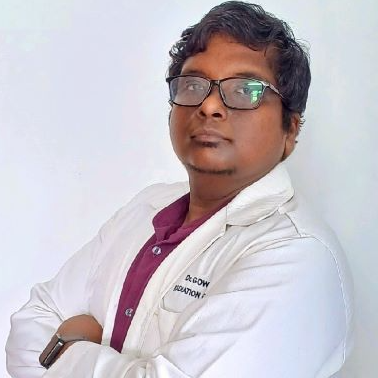Esophageal Cancer Overview: Symptoms, Risks, and Treatment
Learn about esophageal cancer, including its symptoms, risk factors, diagnosis methods, and treatment options. Discover prevention tips and when to seek medical advice for early detection.


Esophageal cancer is a serious condition that affects the esophagus, the long, muscular tube that connects your throat to your stomach. While it may not be as commonly discussed as other cancers, understanding its symptoms, risk factors, and treatment options can help in early detection and better management.
This article aims to provide you with clear, compassionate, and easy-to-understand information about esophageal cancer so that you or your loved ones can take informed steps toward health and well-being.
What is Esophageal Cancer?
Esophageal cancer occurs when abnormal cells grow uncontrollably in the lining of the esophagus. Over time, these cells can form tumors that interfere with swallowing and digestion. There are two main types of esophageal cancer:
1. Adenocarcinoma – Develops in the lower part of the esophagus, often linked to chronic acid reflux (GERD).
2. Squamous Cell Carcinoma – Occurs in the upper and middle parts of the esophagus and is often associated with smoking and alcohol consumption.
Both types can be aggressive, but early detection significantly improves treatment outcomes.
Symptoms of Esophageal Cancer
Esophageal cancer may not show noticeable symptoms in its early stages. However, as the disease progresses, the following signs may appear:
- Difficulty swallowing (dysphagia) – Feeling like food is stuck in your throat or chest.
- Unexplained weight loss – Losing weight without trying due to difficulty eating.
- Persistent heartburn or indigestion – Frequent discomfort or burning sensation in the chest.
- Pain or discomfort in the chest – Aching behind the breastbone or between the shoulder blades.
- Chronic cough or hoarseness – A change in voice or a cough that doesn’t go away.
- Vomiting or coughing up blood – A serious symptom that requires immediate medical attention.
If you experience any of these symptoms persistently, it’s important to consult a doctor. Early diagnosis can make a big difference in treatment success.
Risk Factors for Esophageal Cancer
Certain factors increase the likelihood of developing esophageal cancer. Some can be controlled, while others cannot:
- Modifiable Risk Factors (Can Be Changed)
- Tobacco use – Smoking cigarettes, cigars, or chewing tobacco significantly raises the risk.
- Heavy alcohol consumption – Long-term excessive drinking, especially when combined with smoking, increases the risk.
- Obesity – Excess body weight can lead to acid reflux, which may contribute to adenocarcinoma.
- Poor diet – A diet low in fruits and vegetables may increase risk.
- Non-Modifiable Risk Factors (Cannot Be Changed)
- Age – Most cases occur in people over 55.
- Gender – Men are more likely to develop esophageal cancer than women.
- Chronic GERD (acid reflux) – Long-term reflux can damage the esophagus and lead to cancer.
- Barrett’s esophagus – A precancerous condition caused by persistent acid reflux.
If you have any of these risk factors, regular check-ups and lifestyle changes can help reduce your chances of developing esophageal cancer.
Diagnosis and Treatment Options
If your doctor suspects esophageal cancer, they may recommend the following tests:
- Endoscopy – A thin, flexible tube with a camera examines the esophagus.
- Biopsy – A small tissue sample is taken for lab testing.
- Imaging tests – CT scans, PET scans, or X-rays help determine the cancer’s stage.
Consult Top Oncologist
Treatment Options
Treatment depends on the cancer’s stage and overall health. Common approaches include:
1. Surgery – Removing part or all of the esophagus (esophagectomy).
2. Radiation therapy – High-energy beams target cancer cells.
3. Chemotherapy – Drugs kill cancer cells or stop their growth.
4. Targeted therapy & Immunotherapy – Advanced treatments that attack specific cancer cells or boost the immune system.
Your doctor will create a personalized treatment plan based on your condition.
Lifestyle and Prevention Tips
While not all cases of esophageal cancer can be prevented, you can lower your risk with these healthy habits:
- Quit smoking – Seek help from cessation programs if needed.
- Limit alcohol – Stick to moderate drinking (one drink per day for women, two for men).
- Maintain a healthy weight – Helps reduce acid reflux risk.
- Eat a balanced diet – Include fruits, vegetables, and whole grains.
- Manage GERD – If you have chronic heartburn, consult a doctor to prevent long-term damage.
When to See a Doctor
If you have persistent symptoms like difficulty swallowing, unexplained weight loss, or severe heartburn, don’t ignore them. Early detection is key to successful treatment.
At Apollo 24|7, you can book a consultation with experienced specialists or schedule diagnostic tests conveniently. Taking action early can save lives.
Final Thoughts
Esophageal cancer is a serious disease, but awareness and timely medical care can make a significant difference. By understanding the symptoms, risks, and treatment options, you can take proactive steps toward better health.
If you or someone you know is experiencing symptoms, don’t hesitate to reach out to a healthcare provider. Your well-being matters, and early intervention can lead to better outcomes.
Consult Top Oncologist
Consult Top Oncologist

Dr Sunita Samleti
Oncologist
18 Years • M.D. (Pathology)- TN Medical College, Mumbai University, Mumbai, Mar 2005 M.B.B.S. Grant Medical College, Mumbai University, Mumbai, Oct 1999
Chinagadila
Apollo Hospitals Health City Unit, Chinagadila

Dr.sanchayan Mandal
Oncologist
17 Years • MBBS, DrNB( MEDICAL ONCOLOGY), DNB (RADIOTHERAPY),ECMO. PDCR. ASCO
Kolkata
Dr. Sanchayan Mandal Oncology Clinic, Kolkata

Dr. Sanchayan Mandal
Oncologist
17 Years • MBBS, DNB Raditherapy, DrNB Medical Oncology
East Midnapore
VIVEKANANDA SEBA SADAN, East Midnapore

Dr Gowshikk Rajkumar
Oncologist
10 Years • MBBS, DMRT, DNB in Radiation oncology
Bengaluru
Apollo Clinic, JP nagar, Bengaluru

Dr. Gopal Kumar
Head, Neck and Thyroid Cancer Surgeon
15 Years • MBBS, MS , FARHNS ( Seoul, South Korea ), FGOLF ( MSKCC, New York )
Delhi
Apollo Hospitals Indraprastha, Delhi
(25+ Patients)